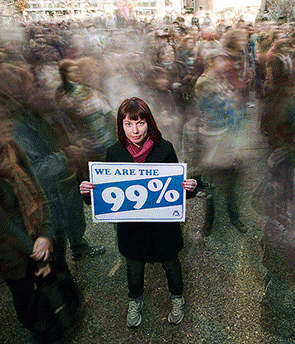Research | Economics
What’s the best remedy for inequality within the 99%?
Since the collapse of the global economy in 2008, a vigorous and necessary public discussion of income inequality has occurred in the United States. Most of that debate has focused on the historic gap between the income of the top 1% and that of the rest of the population.
However, research by MIT economist David Autor suggests that increasing skill differentials within the 99% are even more important — for general well being — than the increasing concentration of wealth.
What accounts for the growing economic disparities among the large majority of Americans?
The Economics of Education
“The single most important factor,” says Autor, “is the rising return on post-secondary education. That explains a lot of the growth and variance, and that is pretty well explained by supply and demand factors.”
From 1980 to 2012, inflation-adjusted, full-time earnings of college-educated males increased anywhere from 20% to 56%, depending on whether they also acquired graduate degrees. Conversely, real earnings of high school graduates fell 11%, and earnings of high school dropouts fell 22%.
“If you had to give a person a single piece of economic advice, it would not be: Act like Gatsby and try to get into the top 1%,” Autor says. “It would be: Go get a college education at a decent school.”
A Smarter Public: Good Policy
On a policy level, Autor believes the best tools the U.S. has to combat inequalities involve investing in our citizenry. “Higher education, and public education, is America’s best idea,” he says. “Our decision to send our entire public through high school over the first thirty years of the 20th Century was probably the single most important factor in U.S. economic predominance for that century.”

Image courtesy of Gawain Jones Photo.
“Higher education, and public education, is America’s best idea.”
Suggested Links
Washington Post report on David Autor’s research

MIT economist David Autor